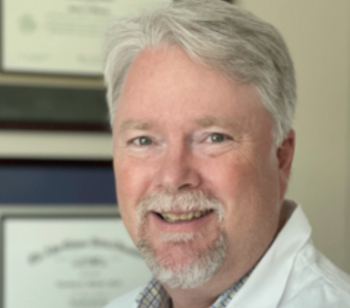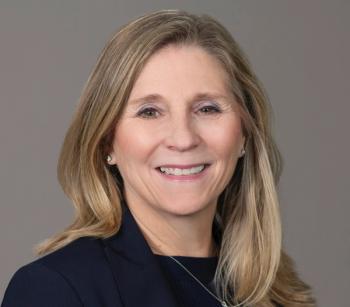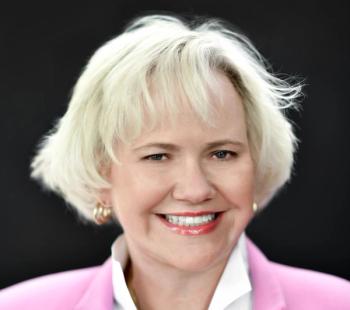
Catholic hospital leaders say Medicaid cuts ‘will impact everyone’
As they appeal to Congress, leaders of Catholic health systems say planned cuts in Medicaid will hurt the most vulnerable, but they’ll also hurt millions of others as well.
Catholic hospital leaders have been pressing President Trump’s administration and Congress to preserve funding for Medicaid as a moral issue.
During a webinar Tuesday organized by the Catholic Health Association of the United States, several leaders of Catholic hospital systems said proposed Medicaid cuts would leave millions without healthcare. And they stressed that the cuts would affect the most vulnerable.
Eduardo Conrado, president of the Ascension health system, said, “These cuts will harm real people. They would reduce access to care, especially for those already facing barriers in many states.”
But Catholic leaders say the Medicaid changes, if finalized by Congress and the president, would hurt more than the program’s beneficiaries.
They’re making the case that the cuts would lead to hospitals and health systems potentially reducing services, and the ripple effects would hurt millions of Americans who don’t rely on Medicaid.
“Cuts of this scale would deepen financial pressure on hospitals, shift even more burden into the private sector, and limit access for everyone, not just those covered from Medicaid,” Conrado said.
Catholic health system leaders said their organizations would be working to persuade lawmakers in the House of Representatives as they consider a spending plan
Erik Wexler, president and CEO of the Providence health system, said the nation was facing “an inflection point in the provision of health care to this country, not just to the vulnerable.”
“When Medicaid suffers, the entire country suffers, because people that are dependent on having access for preventative care need this type of coverage so that they don't get sicker and wind up in our emergency departments and in our ICUs,” Wexler said.
Wexler called it a “poly-crisis” threatening the health system.
“That crisis includes inflation, labor shortage, tariffs, but most impactfully, what is being proposed in Congress right now, to cut Medicaid,” he said.
The House of Representatives is considering a plan that caps the tax states impose on medical providers, which would likely lead to some states raising their own taxes or choosing to cover fewer people. The plan would also impose work requirements on some adults.
Hospitals have said the plans would mean millions of people would lose coverage, and
The Catholic Health Association, which represents more than 600 hospitals nationwide,
Sister Mary Haddad, president and CEO of the Catholic Health Association, said, “These provisions could result in coverage losses for millions of people, creating new administrative barriers for families, providers and states.”
“Congress should not take America down a dangerous path of reducing access to health care in the United States,” Haddad said.
Mike Slubowski, president and CEO of Trinity Health, which operates hospitals in 26 states, said at least 20% of the system’s patients rely on Medicaid. And he said some hospitals in the system have a higher percentage of patients covered by Medicaid.
“Let's be clear, we can't cut hundreds of billions from Medicaid without hurting people and weakening communities,” Slubowski said. “We've seen it firsthand. When people lose coverage, they skip checkups, they stop taking medications, and eventually show up in the ER sicker and in need of more costly care that could have been prevented. And that's not just bad for health. It strains hospitals, overcrowds are emergency rooms, drives up costs for everyone, insured or not.”
“Medicaid cuts don't just impact those who rely on it,” he said. “The ripple effect, it will impact everyone.”
Catholic health system leaders denounced the prospect of adding work requirements to Medicaid eligibility. “It's not just a policy change,” Conrado said. “It's a shift away from the purpose of the program.”
Critics of the job requirements note that most Medicaid recipients are working, while some are the primary caregivers for seniors or those with disabilities. Slubowski argued that work requirements will see states spending more on administrative costs.
“States that have attempted to impose work requirements have spent more managing that initiative, than they have spent providing Medicaid coverage to those who need it,” Slubowksi said.
Joe Hodges, regional president for SSM Health in Oklahoma, highlighted the impact of Medicaid cuts on patients in rural communities, and the fallout for rural hospitals.
“It is a crisis in rural health care,” Hodges said. “Any challenges that are associated with taking away access or funding to rural hospitals will make them even more vulnerable. That is why it is really important for us to advocate for rural health care as well as urban health care.”
Catholic leaders did focus on the impact on individual lives. Conrado said a young boy arrived at an Ascension Texas hospital with severe symptoms. Medicaid covered additional testing, which discovered a brain tumor. The boy received care that saved his life.
“That's what's at stake,” Conrado said. “Real people, real families, real outcomes, and we cannot have that taken away.”






















































































